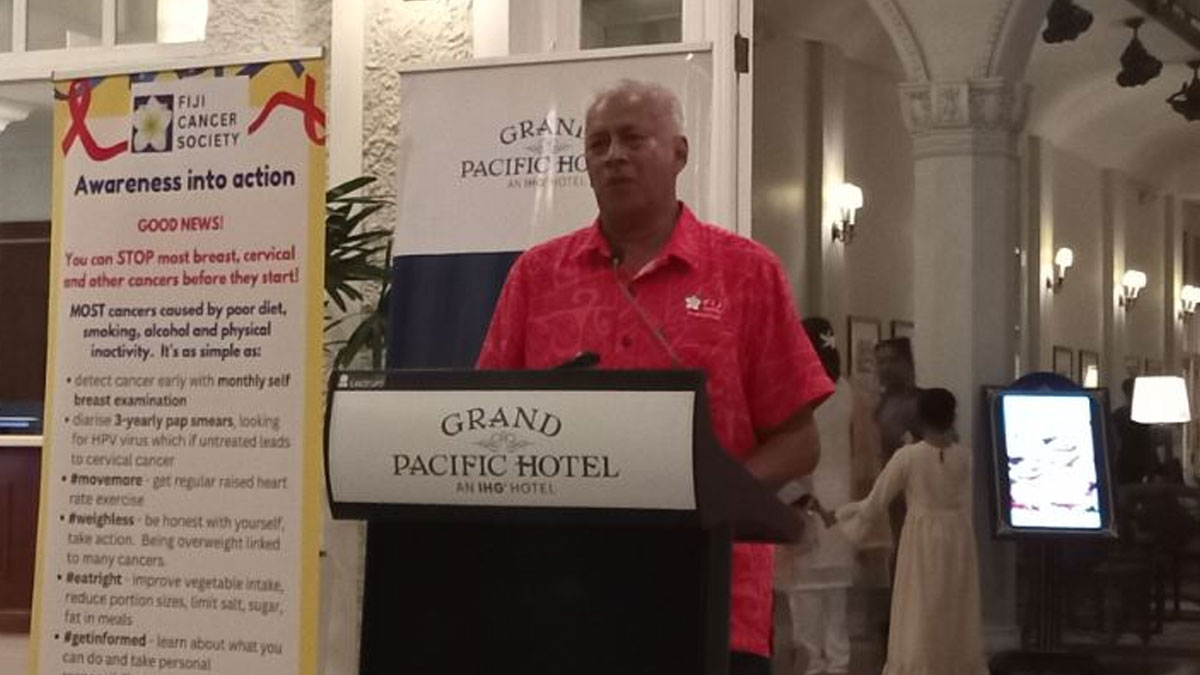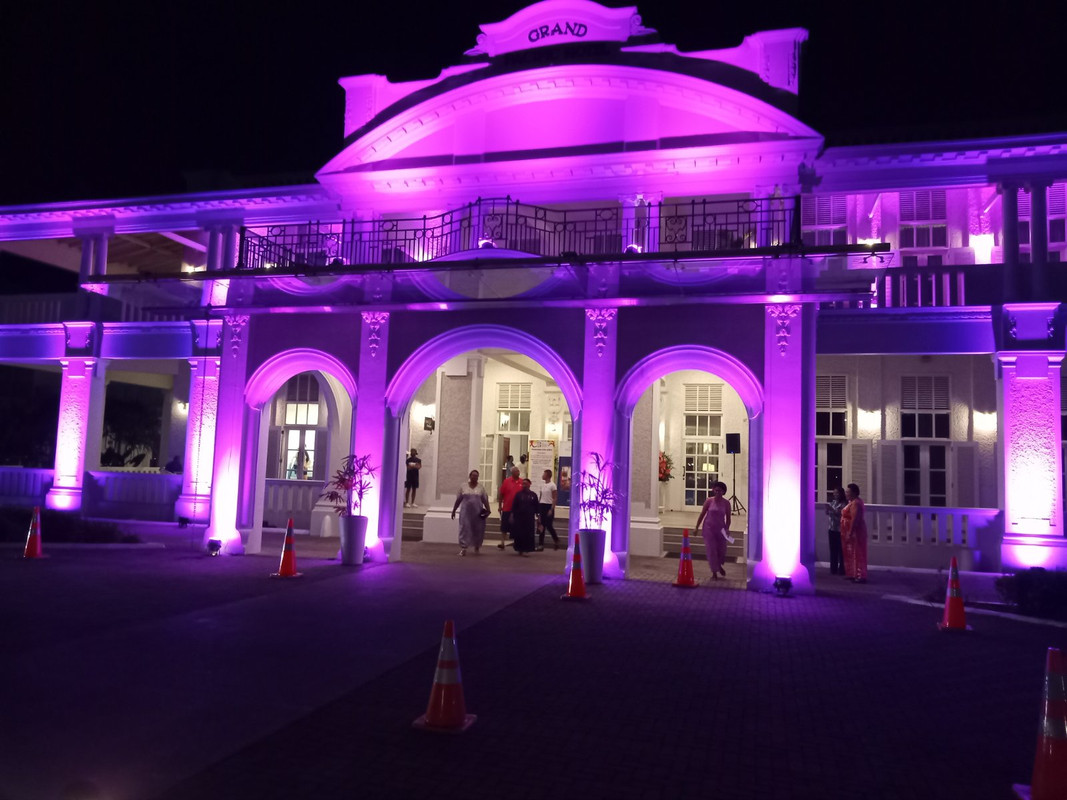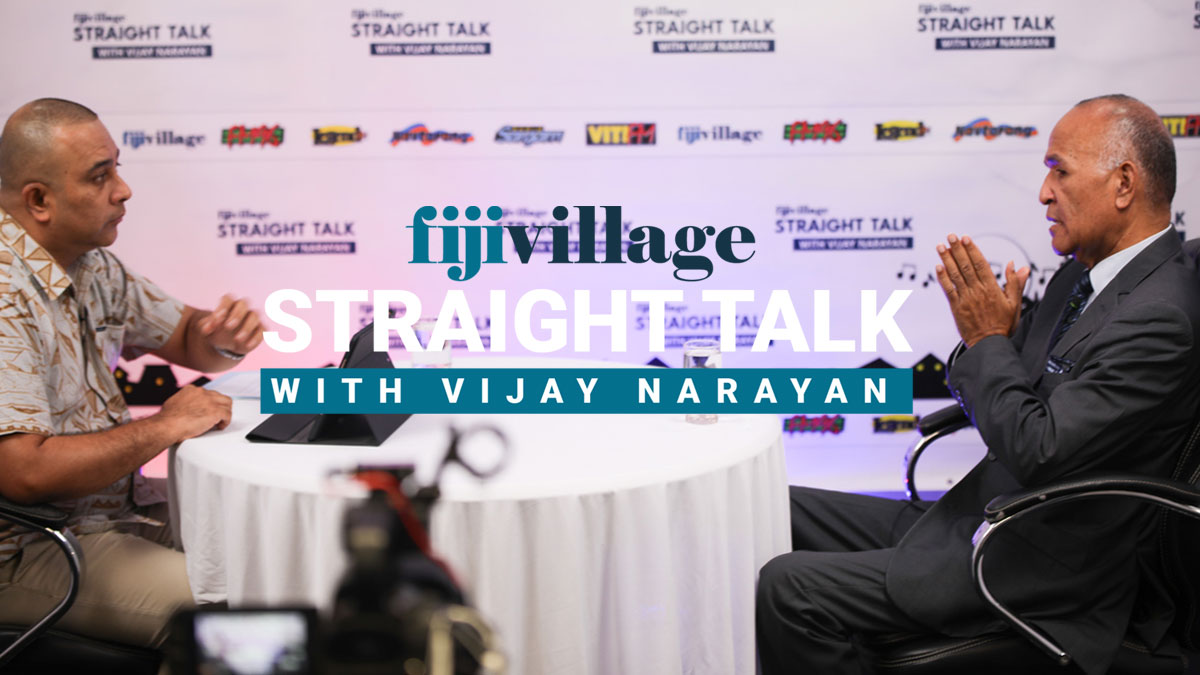
Each year more than 300 women in Fiji die from breast, cervical and ovarian cancer.
This was stated by Fiji Cancer Society Board Chair Makrava Wilson while officiating at the Landmark Lighting ceremony at the Grand Pacific Hotel last night.
Wilson says it is events like this and the many morning teas and fundraisers across the country that focuses on awareness on breast cancer, the lives we've lost and the impact it has on families and on communities.
He says he has seen and heard firsthand of the great work the staff at Fiji Cancer Society and volunteers do to educate Fijians on how to prevent cancer, in providing screening services to help catch cancer early when it's easier to treat, and offering cancer patients, their families and survivors a range of programs and support services to help ease the burden of cancer.
He adds Pinktober is traditionally a time to wear a pink ribbon, or put on a pink outfit to raise awareness of these cancers and remember all the mothers, sisters, aunts, friends that we have sadly lost.

Wilson says their loss and all our Pinktober awareness is in vain unless we all take steps to turn that awareness into action.
He says this year they are asking all Fijians to learn and understand that every individual has the power to change Fiji's lifestyle choices.
Wilson says some cancers are genetic but the majority of cancers can be directly linked to an unhealthy diet, alcohol, physical inactivity and smoking and these risk factors are the same for cardiovascular disease and diabetes too, so taking positive steps in these areas impacts more than one disease.
He says we want to stop cancer before it starts which will have a huge impact on families and communities across Fiji.
Wilson says research has identified many of the causes of cancer and we know the solutions and now it's time for personal responsibility and action.
He says stopping cancer starts with us and we have the power to impact our future health outcomes.
He further says we all need to speak up about our health or our silence will kill us.
Wilson says not all abnormalities are serious, but they do need checking as the earlier we find problems, the easier they are to treat and the better the outcomes.
Stay tuned for the latest news on our radio stations

